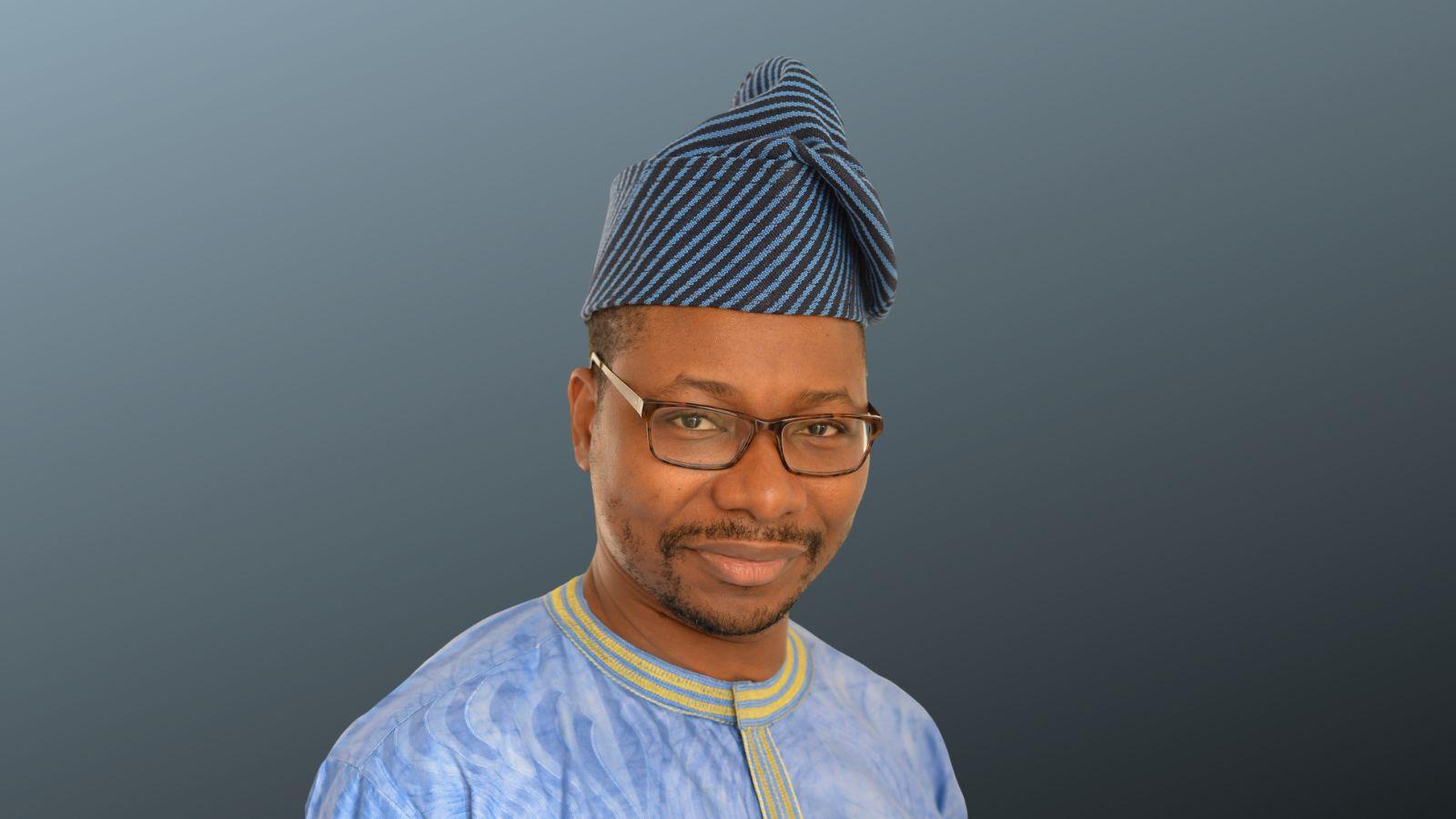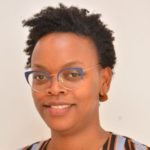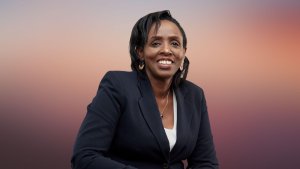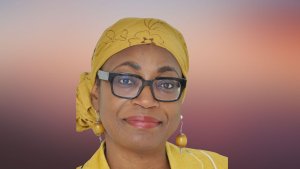An interview with Gilles Yabi, executive director of the West African Think Tank WATHI, on food security in Africa
In this interview for the “Food security and inflation in Africa” series, Folashadé Soulé and Camilla Toulmin interview Gilles Yabi, founder and executive director of the West African Think Tank - WATHI. He guides and supervises the activities of the think tank, whose permanent team is based in Dakar, Senegal. WATHI is an open platform for the production and dissemination of knowledge and proposals on all issues crucial to the present and future of West Africa and other regions of the continent. Gilles Yabi is regularly invited to share his thoughts on political, economic, educational, and security issues with various African and international organizations. He also has long experience interacting with the media and has been publishing columns on African political and economic issues for the past fifteen years. He hosts the weekly column “Ça fait débat avec WATHI” on Radio France Internationale (RFI).
Do you think that the food crisis created by the Ukraine invasion represents a major opportunity to rethink African development models?
Absolutely, yes! But I would add that I have the impression people said exactly the same thing about the COVID health emergency. Granted that it was a very serious health crisis, provoking new thinking about policies to deliver better health, it also led people to ask questions about overall economic strategy. In many areas, you could identify lessons from the health crisis which could bring deep changes to Africa’s development model. I have the sense that we’re all saying the same thing about the impacts of the Ukraine crisis. While the effects are not identical and do not touch on health in the same way, the current fragilities demonstrate long-standing weaknesses which are well-known and documented. It is upsetting to rediscover these weaknesses on each occasion, as though for the first time, knowing that each new shock will generate the same commentary and wish list. Let’s not wait for each subsequent crisis to tell us what we know needs to be done – to redesign better public policies.
Many analysts identify the need to re-think agricultural policy measures across the continent, to attain greater food self-sufficiency, and reduce dependence on external sources of food; certainly it is not the first time we hear this being said; but from your viewpoint, given the extreme difficulties caused by current circumstances, what do you consider the essential changes to agricultural policy?
In our role as a think-tank, named WATHI, we have drawn from experience during the pandemic to prepare and publish a paper outlining the lessons which need to be learned by West African nations, as regards both the economy and political governance. We will also publish shortly a document examining lessons from the COVID crisis for the education sector. In terms of lessons for the economy, the first recommendation does indeed focus on the need to invest more in agriculture across the West African region. Agricultural policies across the African continent must help generate higher levels of production, better able to respond to the needs of a rapidly growing population. Such responses do not need to operate at the level of each and every country, but it is an absolute priority to achieve self-sufficiency at a regional level. Agricultural production needs to build on the ecological and other specificities of each country and tackle the biggest and most troublesome barriers faced by farming and agro-industrial growth. These include infrastructural weaknesses, whether energy or logistics, such as conservation, storage, and transport of produce. We need an approach grounded in the real problems faced every day, in each sector, and identify the tangible obstacles which are holding back growth in productivity.
These obstacles are not only directly linked to agricultural policies but relate to the burdens of high transport costs which make very difficult the movement of farm produce from one region to another, even within the same country. And then there are many other supportive essential actions that need to be taken, such as better training, extension services, and access to credit, as well as investing in scientific research and improving the quality of life in rural areas. If we were to carry out the same exercise today, to derive lessons from the effects of the current Ukraine crisis, we would identify the same set of recommendations. There are well-established economic problems which are well-known. We need to work on addressing these fundamental problems which get in the way of modernizing the farming sector, alongside the transformation of our multiple natural resources through industrialization, a priority that has continually been set aside and ignored for decades in so many African countries. How might we make much better use of these successive crises to put back on the agenda the question of industrialization and how to get there, set within the constraints imposed by climate change?
How might we develop a more productive farming system and benefit from much greater levels of agro-processing? How might we achieve this while also ensuring environmental sustainability and pursuit of a low-carbon pathway? We need to look at all the problems together, in a systematic way, rather than taking a specific issue today such as a shortage of grain. But let me also add, we need to avoid generalizations that mask reality. Everyone talks about the high levels of dependence on grain from Ukraine and Russia, but if you take specific regions of Africa, you see that there are strong contrasts between high levels of wheat imports into North African countries, like Egypt, and much lesser reliance for many West African nations.
There is also a crucial issue for agriculture in West Africa related to the availability and price of fertilizers, which are very largely imported. This high level of dependence as regards fertilizer imports leaves farm production very vulnerable to external shocks. Within the region, only Nigeria has a serious domestic capacity to produce chemical fertilizers, but this output is way below levels of need. We seem to have “discovered” this dependence on outside supplies as a result of this latest crisis. Access to fertilizer has a big effect on farm yields and, hence, food production. More broadly, we need to disaggregate the economic impacts of the Russian invasion of Ukraine in different West African countries, since they will vary from one place to the next.
Many African governments have tried measures to fix or freeze prices, to reduce the impact of inflation on their people. Such measures have had mixed success. How would you assess these different interventions?
The measures you refer to are pretty conventional tools to protect people from inflation by trying to impose a ceiling on consumer prices, especially those for food stuffs and petrol, the latter because the cost of transport obviously feeds into the price of most other commodities. These are really important short-term measures that help limit the suffering of low-income households which would be hit hard by large price increases. But they cannot be maintained for long. Protection of urban populations is especially important for governments in trying to reduce the risk of social and political crisis, and unrest. Governments certainly cannot sit back and do nothing, given that the risk of economic, social, and political unrest is very real. Responsibility lies with governments to act, but one needs to question the hierarchy of objectives every time one steps in to try and protect people from big price increases: is the aim to protect the poorest and most vulnerable? Or are we trying to limit the effects of inflation on specific sectors of the economy, or across the entire economy – in cases when it has been shaken up by the shock from prices and uncertainty?
Governments need to ask themselves these questions and take the time needed to work with a range of economic and social stakeholders, before taking on a set of measures that have very considerable costs. Targeting of measures is essential, but not simple. This arises, as we know well, in relation to petrol – who are the people who really benefit the most? Can we find other, better-targeted routes to reach the most vulnerable? We need to look closely at each and every measure to ensure it responds to the needs of particular target groups, and avoid carrying out policies which, while intending to help the poorest, in fact end up benefitting those able to profit from playing an intermediary role, since having privileged access to information, they know how best to position themselves to gain from public measures.
Short-term measures of this kind often come with the risk of poor transparency, and weak control. We could see with the pandemic how rapid short-term measures put in place by a number of governments led to waste, diversion of resources, and corruption scandals. We must also ask whether it is possible for governments to keep such price controls in place for more than a certain number of weeks or months. If the Ukraine conflict continues for much longer, with the set of economic uncertainties this has brought, it will not be possible to continue with these measures which are hugely costly to state budgets. Many African countries are now facing renewed concerns about macroeconomic stability and rapidly rising levels of debt. How is it possible to respond to the immediate consequences of inflation and at the same time maintain investment capacity, both public and private, in those activities essential for the future? This is a big challenge. We must never lose from sight of the mid- to longer-term perspective and need to address structural weaknesses in African economies.
Watching what is happening at COP27, we can see the priorities of many African countries concern adaptation measures. But there is also an important debate going on about the role of fossil fuels in Africa, especially gas. How do you assess the role of gas for a country like Senegal, in terms of short-term gains, especially for industrialization? What might be some of the medium to longer-term risks from industrialization based on fossil fuels?
This is a very important current issue, which is also politically sensitive. It is hard to tell a country that has just discovered substantial energy resources, such as gas, which offer a strategic and unexpected source of revenue, that such resources should be left in the ground. The questions involved relate to all countries, wherever they are in the world, which find themselves in this situation. The revenues which can be generated by gas represent a massive financial gain that could transform the economic trajectory of the country if the reserves are indeed large and the revenues are well-managed and intelligently reinvested in productive activity and development of human capital. We must acknowledge these are difficult questions, and no one offers a formula, whether for Senegal or for a country like Mozambique on the other side of the continent, which has considerably larger gas reserves.
A short while ago, WATHI organized a public dialogue with IPCC co-chair Youba Sokona, a citizen of Mali and a scientist who has devoted his life to questions of energy. We addressed a large number of questions, including those about whether African countries should use fossil energy resources, like gas. The argument he made revolved around the need to avoid quick and instant answers, and ensure your choices are based on well-established evidence. What remains certain is that each country must choose, based on its initial energy situation and taking into account how it can meet the energy needs of its people, what chance it has of developing significant renewable energy over the next few years, and how its energy needs map out over future decades.
So, a key message is to avoid taking big decisions today based on current prices, which have been massively increased by Russia’s invasion of Ukraine, and which have temporarily obscured the urgent need to bring down the use of all fossil fuels everywhere across the world. Should we also forget the fact that over the decades, many major oil-exporting African countries have not managed to improve the well-being of their people? And should we also avoid thinking about the very large, heavy, costly infrastructure required to channel such fossil fuel resources, infrastructure which is difficult to re-purpose in the short or medium term?
To make wise decisions about opening up new gas fields, you need detailed scientific data concerning the urgency of bringing down carbon emissions at the planetary level. In my discussion with Professor Youba Sokona, we talked a lot about the broader global context and how to reconcile planetary constraints with the need to improve living conditions for the population. This opens up a wide set of questions about tangible adaptation measures and the many changes needed to make progress for people across the African continent. Such changes in approach stretch from methods of transport to clean cooking alternatives, via agricultural production and industrial processes. We have to move beyond a focus on cutting back on carbon and addressing adaptation, towards broader patterns of economic, social, and human development that are fully compatible with the protection of the climate, biological diversity, and pursuit of sustainable development.
What role can civil society play in the current context of the war in Ukraine, and the associated inflation and energy crisis? As a think tank based in West Africa, what can you contribute to this specific situation? Have you been able to put forward a certain number of recommendations for governments, and how have such proposals been received?
WATHI calls itself a “citizen think tank” and thus has a particular position. There are a number of think tanks and specialized research centers which produce position papers and reports containing recommendations on the subjects on which they work day-to-day. WATHI is more of a generalist think tank, focused on opening up public debate to a diverse set of people, experts, commentators, and economic, political, and social actors. Even if we work on a given subject and generate reports with recommendations, we try to avoid reacting and commenting on every issue in the news, since we need the time to examine the subject and ensure our research draws on the work of others. In response to your question, we need to avoid jumping in to respond to each and every problem but stay the course by focusing on issues that are fundamental to our region. These include the capacity of states and society to identify the right response to each crisis as it comes along, without losing sight of strategic medium- and longer-term objectives. This is the true starting point for WATHI: to analyze how our various systems work in reality, whether economic, political, or educational, to figure out ways to make them more like we want them to be so that our future is clearer and more stable. This has to be our approach in West Africa since the room for maneuvering in tackling each set of crises has shrunk, and become more limited as a consequence of what we have failed to do over the last 20, 30, or 40 years.
If we take the agricultural question, we can see how dependent we’ve become on the import of certain cereals and fertilizers. In the short term, it is possible to diversify sources of supply or seek external funding to tackle price rises, but it’s clearly not the work of two or three years to set up factories producing fertilizer. And the same applies in many other fields. We have to tackle the underlying, fundamental weaknesses of infrastructure, transport, logistics, training, education, and scientific research. At WATHI, we think it is really vital to strengthen our institutions so that the state has the ability to consider and listen to the population it is meant to serve and put in place public policies which respond to people’s concerns and establish and maintain educational institutions since they form the bedrock on which everything else is built.
Without well-trained human capital, we will never be able to respond effectively to the range of crises we face. The world is extremely complex, with multiple interconnections within and between scales, and in global power politics, African countries hold few of the cards. We face today enormous costs from the bad choices made by earlier political leaders, often under the influence of external pressures and organizations. Let’s take the example of the transport network: why have we failed even to maintain the few train lines we had in West Africa which operated effectively a few decades ago? And why have we not invested in growing this rail network which should be a top priority for accelerating economic and human integration within West Africa?
We take the position of saying that there are many novelties that catch global attention, especially at the numerous international conferences which are held, there are things on which we need to reflect, and then there are those things that are the greatest priorities for African countries. We really must stay focused on the things that matter most for us, now and above all for the future: such as improving our infrastructure, investing in human capital, good governance of our state and society, and making the best use of our multiple resources – natural, financial, human. Unless we focus, we risk always being buffeted by the next crisis and failing to stand up for the interests of African people today and tomorrow, in a rough world in which strength matters a lot more than solidarity and a sense of common purpose.
Having followed the work of your organization and the Sahel region more broadly, what future do you see for resolving conflict through political negotiation or military force? For example, there have been nearly ten years of military intervention in Mali and Burkina Faso, but with little obvious success. What approach might bring better results on the ground, to manage and resolve conflict and contest between armed groups and the population?
For Mali, and the Sahel region more broadly, the current outlook is bad, very worrying, and particularly uncertain. It is really hard to predict what might happen even in the next 6 months, in Mali and Burkina Faso. The wide range of actors and the diverse nature of their interests are such that we cannot predict the likely actions of any of them. We can also see an absence of clear direction for the future of the country from the leaders of Mali. A new constitution has been drafted, and there is an electoral calendar in place for a return to democratic legitimacy. But a reading of the draft constitution gives little confidence that it will address the fundamental needs to rebuild the institutional structure of the country, as had been argued for the transition and its long duration.
I also lack any sign that the current government in Bamako has a clear political vision for the northern part of the country, which after all was the starting point of the crisis in 2012. Does the Peace Agreement signed in Bamako, built on the Algiers Agreement, constitute the basis for a full reunification of the country from which a political order and government can be installed? Will its writ be accepted across this large country, from Kidal to Sikasso, from Menaka to Kayes? Many uncertainties remain on the one hand as regards the vision of the transitional authorities and on the other the state of security in many parts of the country, where different armed groups are struggling to control territory, leading to fighting and violent conflict. The Malian government has been congratulating itself on the success of the army, and its power to defeat the terrorist groups, in part as a result of the strategic shift made to ally with Russia. But it is not easy to judge the extent of such successes, given the very limited information available.
There have been a number of political dialogues with some of the armed groups in both Mali and Burkina Faso, often one-off and locally specific, but dialogues nonetheless. The question is therefore less one of whether should we dialogue with armed terrorist groups, but rather what is the framework within which these dialogues take place and with what objectives? Is it a means to achieve a degree of local stabilization, increased security for local people in a given area, or a more strategic political move to find a way out of the current crisis? I am pretty cautious about this last question and think it is wrong to contrast a security approach based on military strength with a political response that includes dialogues.
I think we need to ask ourselves what it means to accept that these armed groups are in a strong position vis-à-vis central government, even if the latter must bear much of the blame for armed groups being able to establish and consolidate their position across the region, due to the state’s weaknesses, compromises, and serious mistakes. I am not convinced that dialogue between our severely weakened states and these armed groups, including those practicing extreme violence, will create calm and stable conditions for the future. Let’s not only think about short-term responses to try and improve security but also consider the possible implications of this approach for the entire West African region in 5, 10, or 15 years.
What is the political system we wish to build? In which direction would we hope to see Sahelian and West African societies evolve? What relationship would we want to see between religion, the state, and society, to enable the very diverse communities to flourish in each country and the region more broadly? How might we diminish the incentives and the possibilities of resorting to violence in order to protect and defend the interests of a particular group, which considers itself threatened? We must ask many questions to reduce the risk that we opt for making improvements to security in the short term while darkening the likelihood of achieving peace, security, and social and economic progress for the region in the medium to long term.








